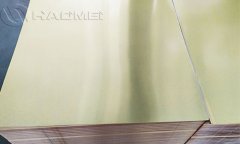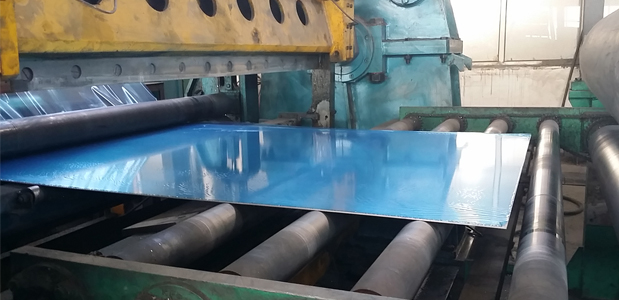-
- News Center
- Related News
-
- Painted color aluminum sheet for ropp caps
- 2015 Haomei Annual Meeting of the New Year

- The painted color alu
-
- Home > News > Company news >
- How do I select aluminum grade to use
How do I select aluminum grade to use?The following is a short breakdown of the most common grades and their general properties in order to provide you with an understanding of their many uses:
Aluminum 1100: This is commercially pure aluminum, 99% min pure. It is soft, ductile, and has excellent workability which makes it ideal for projects requiring challenging forming operations. It work-hardens slowly, and is not heat-treatable. It has excellent corrosion resistance and weldability, and is most often used in the food processing and chemical industries. Al 1100 is noted for having the highest thermal conductivity of any aluminum, and is also known for its high electrical conductivity.

Aluminum 2011: High mechanical strength and easy machinability are the features of this grade. It is the most free-machining aluminum grade, widely used for automatic screw machine products requiring extensive machinework. Fine chips equal faster feeds and long tool life. Its corrosion resistance is good and it may be resistance welded. It machines to an excellent finish.
Aluminum 2024: One of the best known high-strength aluminum alloys, with excellent fatigue resistance. Used in structures and parts where good strength-to-weight properties are desired. Corrosion resistance is relatively low, so 2024 sheet is often clad (Alclad) to improve upon this detail. This alloy can be formed in the annealed condition and then subsequently heat-treated.
Aluminum 3003: The most widely used aluminum alloy. Added manganese increases tensile strength. Used for drawing, spinning, fuel tanks and sheet metal work. This alloy is non-heat treatable, and is corrosion resistant.
Aluminum 5052: This is the highest strength alloy of the non-heat treatable grades. It has good resistance to marine atmosphere and salt water corrosion. With excellent workability it can be easily drawn and formed into intricate shapes.
Aluminum 6061: This is the most versatile of the heat-treatable alloys, sometimes referred to as the "work-horse" alloy. It offers a broad range of mechanical properties and corrosion resistance. It can be fabricated with most of the commonly used techniques.
Aluminum 6063: Commonly referred to as the architectural alloy. It was developed as an extrusion alloy with relatively high tensile properties, excellent finishing capabilities, and corrosion resistance. Often used in various exterior and interior architectural applications, such as windows, doors, store fronts, and trim. It is also well-suited for anodizing.
Aluminum 7075: This is one of the highest strength aluminum alloys available. It is ideally used in highly stressed parts. In sheet it is also available as Alclad to improve corrosion resistance. Often used in aerospace applications because of its desirable mechanical properties. May be formed in the annealed condition and then heat-treated.End Use Potential Aluminum Grades Aircraft (Structure/Tube) 2014 2024 5052 6061 7075 Architectural 3003 6061 6063 Automotive Parts 2014 2024 Building Products 6061 6063 Boat Building 5052 6061 Chemical Equipment 1100 6061 Cooking Utensils 3003 5052 Drawn and Spun parts 1100 3003 Electrical 6061 6063 Fasteners & Fittings 2024 6061 General Fabrication 1100 3003 5052 6061 Machined Parts 2011 2014 Marine Applications 5052 6061 6063 Piping 6061 6063 Pressure Vessels 3003 5052 Recreation Equipment 6061 6063 Screw Machine Products 2011 2024 Sheet Metal Work 1100 3003 5052 6061 Storage Tanks 3003 6061 6063 Structural Applications 2024 6061 7075 Trucks Frames & Trailers 2024 5052 6061 6063
- Haomei aluminum
- haomei Aluminium Plate




